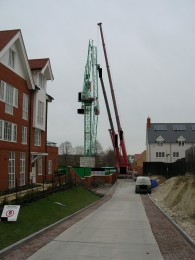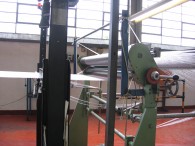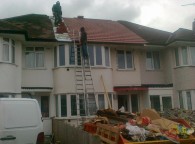Business owner sentenced for customer death failings
- The owner of a Berkshire car maintenance business has been sentenced for safety failings after reversing into and killing a customer in his van.
Frederick Gleeson, 79, from Staines, Surrey, sustained fatal head injuries in the incident at Complete Car Care on Welley Road, Wraysbury, on 12 March 2012.
He was struck by a van driven by sole trader Mark Walker after dropping his car at the domestic business to have an oil leak checked.
Reading Crown Court heard during a week-long trial that Mr Gleeson was in the driveway of the premises as Mark Walker started to reverse his van along the drive to leave the garage.
Mr Gleeson was unable to react in time as the van came towards him and was knocked over, banging his head on the drive. He was rushed to Wrexham Park Hospital but died later the same day from his injuries.
A subsequent investigation by the Health and Safety Executive (HSE) identified that Mark Walker had no system in place for safely managing the movement of vehicles, particularly reversing vehicles, in his yard.
The court was told his van had no direct rear visibility, and that a rear monitoring camera that had retrospectively been fitted to the vehicle wasn’t used.
HSE also established that Mark Walker did not physically check whether the route was clear of any person or arrange for assistance when reversing.
The business owner was today (18 December) fined £7,500 and ordered to undertake 250 hours of community work after being found guilty of two separate breaches of the Health and Safety at Work etc Act 1974. He is also liable for £75,000 in prosecution costs, which will be covered through insurance.
In his summing up, the judge ruled that Mark Walker’s breach of duty was a direct cause of Mr Gleeson’s death.
After sentencing HSE Inspector Nigel Fitzhugh said:
“Mr Gleeson’s tragic death was entirely preventable, and could have been avoided had Mark Walker taken precautions before reversing his van.
“Managing the movement of vehicles at his premises was entirely his responsibility and it is clear there was no system in place to control this. Pedestrians and vehicles should always be segregated, and if that cannot happen then other precautions should be put in place.
“On this occasion that should, at the very least, have included checking the rear of the van before reversing with assistance if necessary, or putting in place a system that meant he did not have to reverse from his premises, neither of which happened.”
He was struck by a van driven by sole trader Mark Walker after dropping his car at the domestic business to have an oil leak checked.
Reading Crown Court heard during a week-long trial that Mr Gleeson was in the driveway of the premises as Mark Walker started to reverse his van along the drive to leave the garage.
Mr Gleeson was unable to react in time as the van came towards him and was knocked over, banging his head on the drive. He was rushed to Wrexham Park Hospital but died later the same day from his injuries.
A subsequent investigation by the Health and Safety Executive (HSE) identified that Mark Walker had no system in place for safely managing the movement of vehicles, particularly reversing vehicles, in his yard.
The court was told his van had no direct rear visibility, and that a rear monitoring camera that had retrospectively been fitted to the vehicle wasn’t used.
HSE also established that Mark Walker did not physically check whether the route was clear of any person or arrange for assistance when reversing.
The business owner was today (18 December) fined £7,500 and ordered to undertake 250 hours of community work after being found guilty of two separate breaches of the Health and Safety at Work etc Act 1974. He is also liable for £75,000 in prosecution costs, which will be covered through insurance.
In his summing up, the judge ruled that Mark Walker’s breach of duty was a direct cause of Mr Gleeson’s death.
After sentencing HSE Inspector Nigel Fitzhugh said:
“Mr Gleeson’s tragic death was entirely preventable, and could have been avoided had Mark Walker taken precautions before reversing his van.
“Managing the movement of vehicles at his premises was entirely his responsibility and it is clear there was no system in place to control this. Pedestrians and vehicles should always be segregated, and if that cannot happen then other precautions should be put in place.
“On this occasion that should, at the very least, have included checking the rear of the van before reversing with assistance if necessary, or putting in place a system that meant he did not have to reverse from his premises, neither of which happened.”



